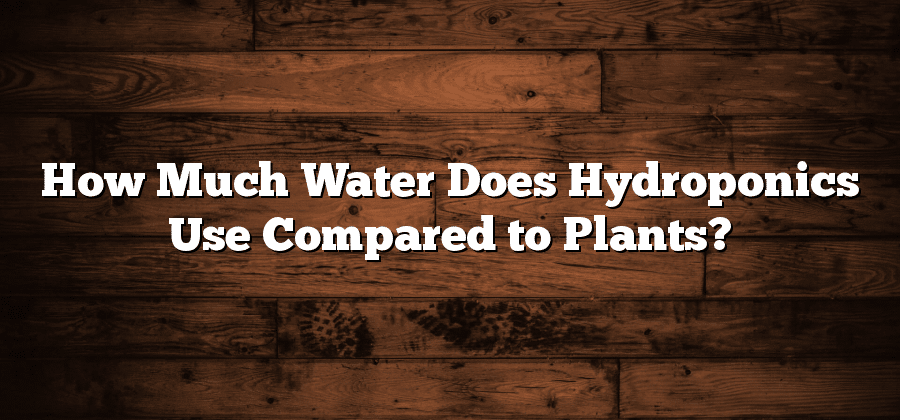The Advantages of Hydroponics for Water Conservation
Hydroponics, a soilless agricultural method, offers numerous advantages when it comes to efficient water usage and conservation. Firstly, hydroponic systems require significantly less water compared to traditional soil-based farming. This is due to the closed-loop system that recirculates and reuses water, minimizing wastage. In fact, studies have shown that hydroponics can use up to 90% less water than traditional farming methods, making it a sustainable solution in regions with limited water resources.
Moreover, hydroponics enables precise control over water delivery to plants. Instead of relying on natural rainfall or irrigation, hydroponic systems provide plants with the exact amount of water they need, eliminating water runoff and leaching. This not only conserves water but also prevents the contamination of natural water sources with excess fertilizers or pesticides. By fine-tuning the water supply, hydroponics promotes healthier plant growth while maintaining optimum water efficiency.
Understanding Water Efficiency in Hydroponics Systems
Hydroponics, a soilless method of cultivation, has gained significant attention for its potential in maximizing water efficiency. By providing water directly to the plant roots in a controlled environment, hydroponics eliminates the need for excessive water usage often associated with traditional soil-based farming. This not only reduces water consumption but also allows for precise water management, leading to higher water efficiency.
One key factor influencing water efficiency in hydroponic systems is the recycling and reuse of water. Unlike traditional farming methods where water is lost through evaporation and runoff, hydroponics systems are designed to recirculate water. This means that the water used to hydrate and nourish the plants is continuously filtered and reused. By implementing efficient water recycling techniques, hydroponic farmers can minimize water waste and ensure that their plants receive a consistent supply of water and nutrients.
The Impact of Water Requirements on Plant Growth in Hydroponics
In hydroponics, the impact of water requirements on plant growth cannot be overstated. Unlike soil-based farming, where plants obtain water from the ground, hydroponic systems rely on a carefully controlled nutrient solution. This water-based approach has several advantages, such as allowing for precise control over the amount and availability of water for the plants.
Water availability directly affects various aspects of plant growth, including nutrient uptake, photosynthesis, and overall health. In hydroponics, where plants are grown exclusively in water, it becomes crucial to closely monitor and adjust the water requirements to optimize plant growth. Too little or too much water can have detrimental effects, leading to nutrient deficiencies, root rot, or stunted growth. Therefore, understanding the specific water needs of different plant species and adjusting the water supply accordingly is a fundamental aspect of hydroponic farming.
Comparing Water Usage in Hydroponics and Traditional Soil-Based Farming
One of the key factors to consider when evaluating the sustainability of different farming methods is water usage. In traditional soil-based farming, water is typically supplied to plants through irrigation systems that distribute water across the entire field. This method inevitably leads to water wastage, as a considerable amount of water is lost due to evaporation and runoff. Moreover, the larger the field, the more water is required to adequately hydrate all the plants.
In contrast, hydroponic systems provide a more efficient water management solution. As plants are grown without soil, water is directly supplied to the plant roots, eliminating the risk of evaporation and minimizing water loss. In hydroponics, water is recirculated within the system, ensuring that it is used to its fullest potential. This closed-loop system significantly reduces water waste, making hydroponics a more sustainable option when considering water conservation.
Factors Affecting Water Consumption in Hydroponics Systems
Water consumption in hydroponics systems is influenced by a multitude of factors that require close attention and strategic management. One of the primary factors affecting water consumption is the type of hydroponic system being used. Different systems, such as nutrient film technique (NFT), deep water culture (DWC), and aeroponics, have varying water requirements and efficiencies. For instance, NFT systems typically use a thin film of nutrient solution, resulting in lower water consumption compared to DWC systems that require larger volumes of water to support plant roots. Similarly, aeroponics systems, which involve misting the roots with nutrient solution, can significantly reduce water usage.
Furthermore, the choice of plant species plays a crucial role in determining water consumption in hydroponics systems. Each plant has different water requirements, influenced by factors such as size, growth stage, and environmental conditions. Leaf area and transpiration rate are particularly significant factors affecting water consumption. Leafy greens, for example, generally have higher transpiration rates and require more water compared to herbs or small fruiting plants. By carefully selecting compatible plant species and optimizing growth conditions, hydroponic growers can effectively manage water consumption in their systems.
As water scarcity continues to be a pressing global issue, understanding the factors that affect water consumption in hydroponics systems becomes increasingly crucial. By considering the type of hydroponic system and carefully selecting plant species, growers can implement strategies to minimize water usage while still maintaining optimal plant growth. Implementing water-efficient techniques and technologies can not only reduce the environmental impact but also contribute to the sustainability and profitability of hydroponic farming. With further research and innovation, it is possible to achieve even greater water efficiency in hydroponics, ensuring a more sustainable future for agriculture.






